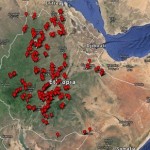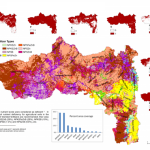The Central Statistical Agency (CSA) plays a critical role in collecting data for surveys which are used in ESSP’s research activities. To achieve quality and efficiency in data collection processes, ESSP has supported CSA in training trainers and supervising computer training to provide data capture skills using Computer Assisted Personal Interviewing (CAPI). ESSP set up […]
The right fertilizer for Ethiopia’s soils
ESSP’s efforts to build capacity and disseminate knowledge in areas that are critical to development, are manifested in the soil mapping program – the Ethiopian Soil Information System (EthioSIS) - driven by the Ethiopian government. ESSP seconded Hailu Shiferaw, a GIS expert, to work with the Agricultural Transformation Agency (ATA) and the Ministry of Agriculture […]
The impact of research on the Productive Safety Net Programme (PSNP)
For over 30 years, responses to food insecurity in Ethiopia were dominated by emergency food aid. While this food aid saved lives, it often failed to protect livelihoods and this became a growing concern. In response, during 2005 the Ethiopian Government revised its emergency food aid system and launched the Productive Safety Net Programme (PSNP) […]
The impact of research on weather index insurance
Weather risk remains a major challenge to households in low-income economies whose livelihoods depend on agriculture. With over 80% of the population involved in the agricultural sector, the cost of uninsured weather risk can be substantial both in terms of immediate production losses to households as well as hindering them from making critical investments that […]
The impact of Computable General Equilibrium (CGE) training
A CGE model describes a steady-state economy where supply is balanced with demand. It considers all existing economic variables and the impact of any changes, and in particular changes in policy reform. A CGE has become a standard tool for economic analysis. For this reason, ESSP in association with EDRI, put effort into achieving a […]

